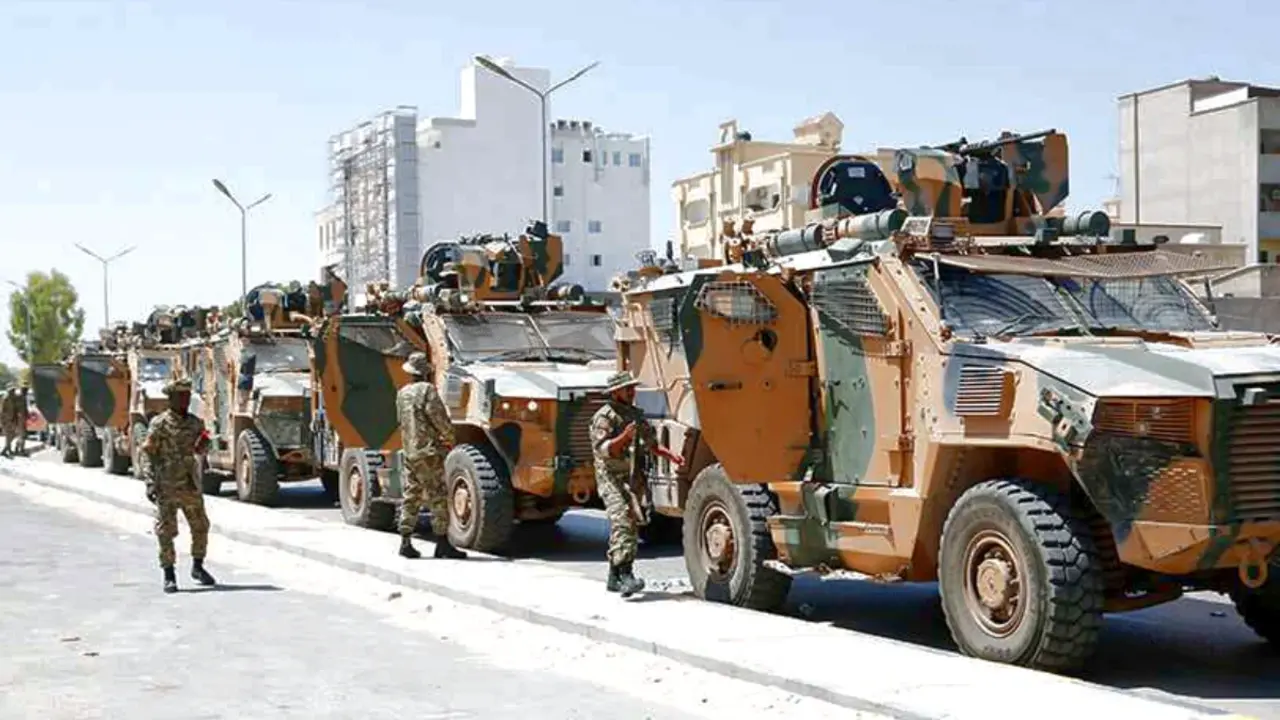Naval manoeuvres in Middle East to deter threats

Middle Eastern countries such as Saudi Arabia, Jordan and Bahrain are embarking on the largest naval exercises in the region with the aim of shielding global shipping lanes and deterring threats. The exercises are part of a new edition of the International Maritime Exercise (IMX), a joint naval operation that has been conducted in the region since 2012.
انطلاق فعاليات التمرين البحري الدولي المختلط متعدد الجنسيات (IMX/CE23) في مملكة البحرين والمملكة الأردنية الهاشمية، بمشاركة القوات البحرية الملكية السعودية. pic.twitter.com/gh6vlnSb0p
— وزارة الدفاع (@modgovksa) March 7, 2023
Brigadier General Haza bin Muadib Al-Qaiaqi Al-Ruwaili, one of the commanders of the Saudi forces, has described the exercises as "one of the largest in the world". According to Al-Arab, the Saudi military official said that the exercises are taking place in the waters of the Persian Gulf, the Sea of Oman, the northern Arabian Sea, the Indian Ocean, the Gulf of Aden and the Red Sea. In addition to Saudi Arabia, Jordan and Bahrain, more than 40 countries, including the United States, and international organisations are participating in the operations.
#القوات_البحرية تنهي استعداداتها للمشاركة في مناورات التمرين البحري المختلط متعدد الجنسيات (IMX/CE23) في مملكة البحرين والمملكة الأردنية الهاشمية. pic.twitter.com/G0VtEULoTS
— وزارة الدفاع (@modgovksa) February 28, 2023
All Royal Navy ships in the Gulf region are also expected to participate. "It is vitally important that the UK participates fully in IMX23 alongside our partners in the region," stressed Phil Dennis, the Royal Navy's senior officer in the Middle East. According to the Royal Navy, these exercises will address threats and challenges such as terrorism, smuggling, sea mines and drone strikes.
?: Ships from partner nations participating in International Maritime Exercise (IMX) 2023 under Combined Task Force East operate in the Arabian Gulf, March 6. pic.twitter.com/36hJnapMVE
— U.S. Naval Forces Central Command/U.S. 5th Fleet (@US5thFleet) March 8, 2023
The Arabic newspaper also stresses that, in addition to securing shipping lanes and deterring threats, these exercises contribute to regional stability and serve to increase combat readiness and exchange experiences. Last year's exercises involved 9,000 troops from 60 countries and international organisations.
A @RoyalNavy flight deck team from @1700NAS in @RFACardiganBay met with Japanese sailors on minesweeper JS Uraga, while in Bahrain ahead of exercise #IMX23. Leading airman Butter said: "They have the same sense of humour as us. They're a great bunch!” @JMSDF_PAO #1700NAS pic.twitter.com/7VbLNI32qP
— RNAS Culdrose (@RNASCuldrose) March 2, 2023
This new edition of IMX will last until mid-March, as reported by the Saudi Al-Arabiya channel, and comes at a time of heightened tensions in the region due to Iran's new nuclear advances. IAEA reports recently warned that the Iranian regime had begun to enrich uranium to more than 80 %, just a few points below what is needed to obtain a nuclear weapon. The exercises are also taking place amid the stalemate in Oman-led negotiations between Riyadh and Yemen's Tehran-backed Houthi rebels.
Some images from the International Maritime Exercise 2023 (#IMX23). #IMX23 is the largest naval exercise in the Middle East.
— Global Defense Insight (@Defense_Talks) March 5, 2023
???????????????? and several other participants. pic.twitter.com/5yoQeo9olj
The naval exercises come on the heels of military exercises organised by the US and Israel in late January. Juniper Oak' was intended to deepen integration between the two countries' militaries, although it was also suggested that it could serve as a message to Iran.
?: Sailors assigned to U.S. 5th Fleet's Task Force 56 operate a patrol boat in the Gulf of Aqaba, March 3, during International Maritime Exercise 2023. #IMX23 is the largest naval exercise in the Middle East. pic.twitter.com/VB8qE2NhTb
— U.S. Naval Forces Central Command/U.S. 5th Fleet (@US5thFleet) March 5, 2023
Israel has also participated in military exercises with Arab countries in the region through cooperation under the Abraham Accords. In November 2021, Israel, the United Arab Emirates and Bahrain conducted the first publicly recognised joint naval exercises. The exercises, which included US participation, were intended to help counter Iran's 'power projection' in the region, an Israeli naval official told Reuters.








